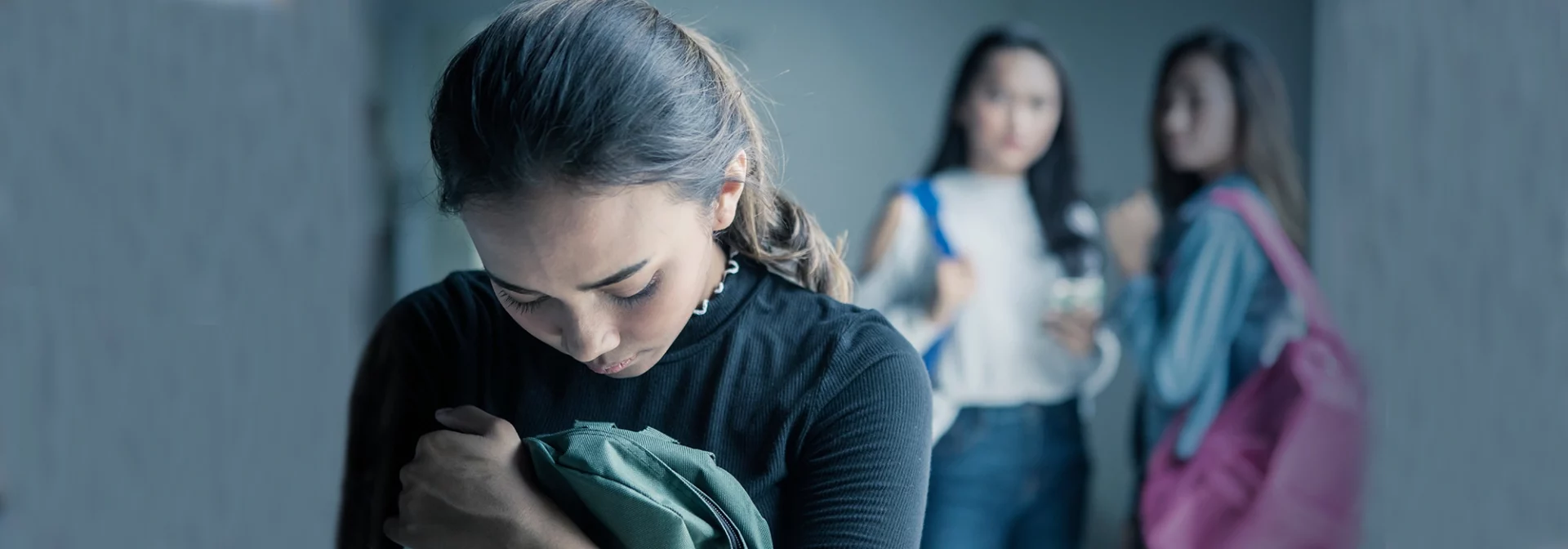It can be very hard if we see our teen in an unhealthy relationship of any kind — especially if they don’t recognize it or if they don’t openly communicate with us. Positive relationships help us grow and get to know ourselves better, but when they are unhealthy they can take a huge toll on us.
How do you know when your teen is in an unhealthy relationship? And, how can you support them?
Unhealthy Relationships Are More Common Than You Think
Though it may be hard to grasp that your teen may be in an unhealthy relationship, they occur more frequently than you might think. According to the CDC, 26% of those who identify as female and 15% of those who identify as male, have experienced dating violence before the age of 18. According to the same CDC report, youths who experience unhealthy, abusive, or violence in relationships are more likely to experience depressive thoughts, anxiety, use tobacco, drugs, or alcohol, or in more serious cases, experience suicidal ideation.
Assessing if Your Teen Is in an Unhealthy Relationship
It’s important to pay attention to the relationships in your young person’s life. These relationships can change and new relationships may form. Here are some things to think about when assessing your young person’s relationships.
- How do your young person’s friends talk with them and support them?
- Does your young person act differently around their friends or partner?
- Has your young person separated themselves from long-time friends after a new relationship was formed?
- When your young person comes home from school or an outing, do they seem distressed?
- Are they acting secretive with you around certain topics?
- Do they have a pattern of participating in unhealthy relationships?
- How are their friends/partners treating your young person? Are they taking advantage of them in any way?
- Does your young person seem preoccupied, overwhelmed, or anxious about any of their relationships?

Unhealthy Relationship Red Flags
The following are signs your young person could be in an unhealthy relationship.
- They start changing all of their clothes to fit in with their group of friends.
- They stop speaking to other friends for no good reason.
- There are marks on their body that you haven’t seen before and they have a hard time explaining.
- They have a partner that takes their phone to check it.
- They give their online passwords to their friends or partners.
- They’ve become more anxious and avoidant.
- Their wardrobe changes, where they wear clothing that is more baggy and covers a lot of their body.
- Their interests change and they become interested in only what their partner is interested in.
- They stop spending time with their friends.
- They are paying for everything and/or giving money away.
- They start apologizing more and more.
- The relationship gets serious very quickly. It’s too intense.
- They are constantly texting and checking in on their partner instead of doing other things.
These are just some signs that may indicate when it would be good to check in, investigate, and make sure everyone is okay.
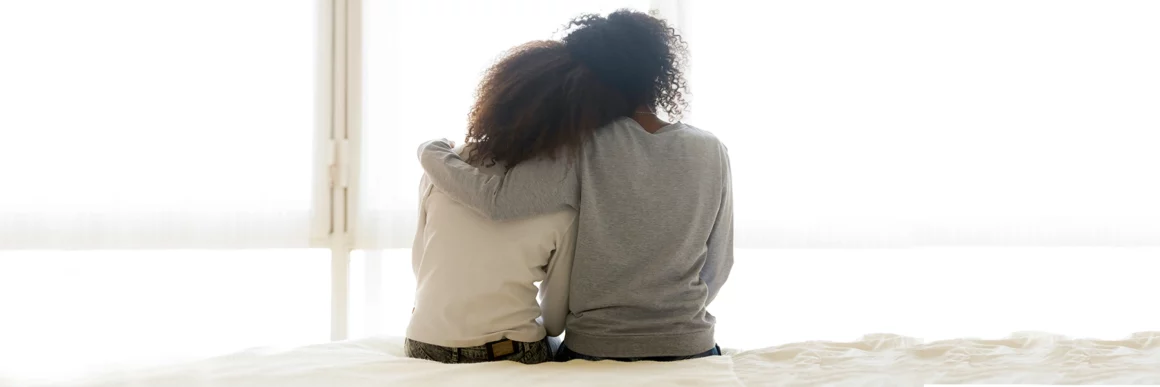
Seeking Support for Your Teen’s Unhealthy Relationship
If you believe your young person might be in an unhealthy relationship — romantic or otherwise — you can take action and seek support for your preteen or teen.
Talk to Other Caregivers and Parents
Talk to the caregivers or parents of your child’s friends, the ones you know you can trust. Ask them to see if they have noticed any signs, and to be the other caring, thoughtful adult in their life. We know it takes a village, so start the process of finding yours for your young people.
Spend Time Alone With Your Teen
Find a time to be alone with them doing something they enjoy. Calmly ask them about their relationship and how it is going. Tell them you love them and that they deserve to be treated well. If they feel like they aren’t, let them know you are there to support them.

Ready to elevate your parenting? Become a member of the BLOOM family today!
Gain access to workshops, coaching, and a network of supportive parents. Don’t navigate this journey alone –
Keep Calm When You Talk
Sometimes when we talk with our young people, we can get pretty defensive and protective. When we are inquiring about a relationship we need to practice keeping our cool. Concentrate on discussing behaviors that you don’t like, and try not to focus on the person. When we say we don’t like the person, then we can lose our young person’s interest in the conversation and trigger a more defensive attitude in them.
Tell a Story
Storytelling is one of the best ways to connect with others. Offer stories from your life that are appropriate around relationships that weren’t healthy. Often we can’t see or want to accept that we may be in a relationship that is unhealthy, so hearing stories about relationships that felt great and were caring vs. other relationships that may have started that way, but turned sour are helpful.
Talk to a Professional
Seek help yourself by talking to a counselor or local agencies who specialize in knowing the signs of unhealthy relationships. Run your concerns by them and have their information handy to provide to your young person. Another suggestion is to have a place in your house where your young person knows they can go to seek answers to questions they may not be ready to ask you. Put brochures, articles, and books in this location.
BLOOM’s Teen HUB can be a resource for your young person. Encourage them to find answers to all their relationship questions and more!
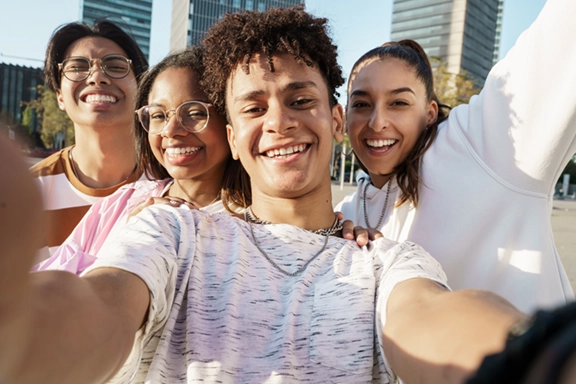
What to Do if Your Child is the Offender in the Relationship
Seeing your young person behaving in a way that may cause harm to others can be very difficult. But sometimes this type of behavior is a cry for help, need for attention, stress, or exposure to violence through the media or personal experience.
If you think your child is the offender in an unhealthy relationship, start by:
- Reflecting on why the behavior is occurring. Ask questions and be observant.
- Reaching out to a mental health professional or counselor, especially if your young person would benefit from learning how to control their anger, develop strategies to express anger and frustrations appropriately, and take responsibility for their actions.
- Address any conflicts at school, with peers, or within the family.
- Create moments to carve out time to check in with them.
- Comment on the behavior they are exhibiting — not on the person, but the behavior.
- Ask them questions like: “What do you need from me?”; “How can I support you?”; “Let’s set up a time where we can hang out together.”
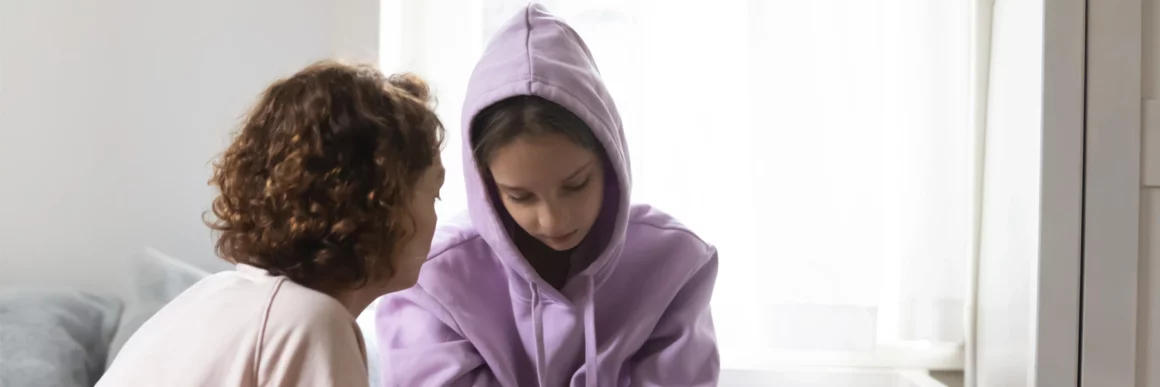
How to Best Support Your Teen in Cultivating Healthy Friendships & Relationships
The best way to help your tween or teen cultivate healthy relationships is to model that behavior and cultivate them for yourself. Each and every one of us has worth, and needs to feel safe, seen, and heard.
If we don’t feel these things with the people we surround ourselves with, we may need to make a change. The first step would be to admit that there is a relationship or relationships that aren’t healthy in your personal circle. Look at why that is, then ask for help from someone you trust to help you figure out the next best step.
Here are some ways to cultivate healthy relationships:
- Watch a movie together and make it a game to point out moments of healthy interactions and those that are not.
- Write down what you want for your young person, in terms of relationships. Ask them to write down what they want, then share and have a conversation together about it.
- Ask questions like, “How do you want to feel in a relationship?”; “How do you want to be treated?”; “What does that look like for you?” Healthy relationships are intentional, so taking time to be intentional with your young person shows them a wonderful first step in building a good foundation.
- Practicing what you hope for them is key, for instance with consent. Start asking their permission on things like: “May I hug you?”; “May I come into your room?”; “Could we spend time together this evening?” Encourage them to do the same with you.
- Give them your full attention and be undistracted by your phone when they are talking with you. This might be hard, but if we want their attention, we should practice the same.
- Start a family dialogue. Sometimes your young person may be more comfortable talking in a group setting, where they can challenge their opinions between safe members of their family.
- Have all the members in your family write down what components are a part of a healthy relationship for them and then have them circle their top three. You will find that some of us feel very similar and others feel quite different. It also helps you see where there may be any gaps, which is a perfect place to start more conversations.
- Sometimes having conversations like this can be easier for your young person and you if done on a walk or while riding in a car, when you aren’t face to face but are still in the same physical space.
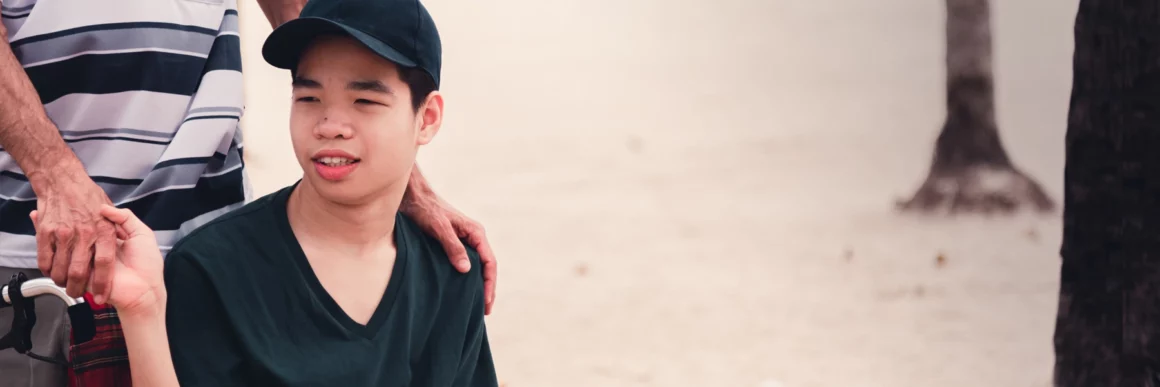
Supporting Your Young Person With Disabilities*
For those of us who care for preteens and teens who also have been diagnosed with a disability*, such as learning differences, autism, mental health needs, or motor needs, we may be extra concerned about their relationships, safety, and well-being. Here are a few tips around this subject.
- Be sure you use correct names for body parts with your young person.
- You may also want to further practice and role-play with them on how to self-advocate for their needs.
- Talk to your young person’s providers and educational team about the best way to support your young person’s individual needs. If needed, an IEP goal around self-advocacy or safety may be appropriate.
- Ensure your young person feels safe and trusts the person they are with. Unfortunately, according to the CDC, those with a disability are at a higher risk of dating violence.
- Depending on your young person’s cognitive needs and communication skills, they may need more supervision for longer than their peers, to ensure they are safe.
- For preteens and teens who struggle with social relationships and friendships, it is important that they participate in activities that they enjoy and that celebrate their strengths. They may be happiest doing what they love. And that is great!
While a disabled person may need more assistance in some areas over others, we want to honor their individualism and adaptability. It can be mentally and physically exhausting living in a world that accommodates mostly able-bodied, neurotypical people.
If our society could change the way it operates so it accommodated all persons and their needs, then disability would be considered another form of diversity, which is a beautiful thing.
Some resources to help you further explore relationships under the lens of a person with disability:
*BLOOM appreciates that some people prefer the phrase “person with disability” and some prefer “disabled person.” To honor that, we use both terms. For more information check out this article.
Get Support
If you need help supporting your tween or teen in an unhealthy relationship, BLOOM has put together a list of resources to help your friend or family member.
- Reframing our Stories
- Rape, Abuse & Incest National Network (RAINN)
- National Dating Abuse Helpline /1.866.331.9474
- Rape, Abuse & Incest National Network (RAINN) /1.800.656.4673
- ParentingSafeChildren
- SavvyParentsSafeKids
If you are still feeling overwhelmed, don’t worry! BLOOM is here to help. With our library of On-Demand Workshops with our trusted educators, to our Ask the Expert Forum & Live Events where you can get answers to your burning questions from our qualified professionals, to Supportive Community, where you can find strength in a community of other parents and caregivers, to Direct 1-on-1 Parent Coaching Support, we’ve got you. Raising tweens or teens is hard enough. BLOOM is here to make it a little easier.
